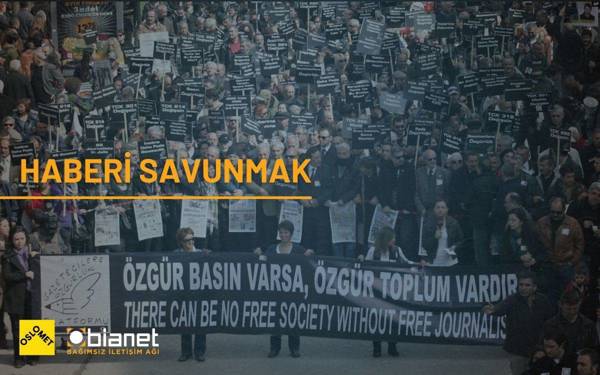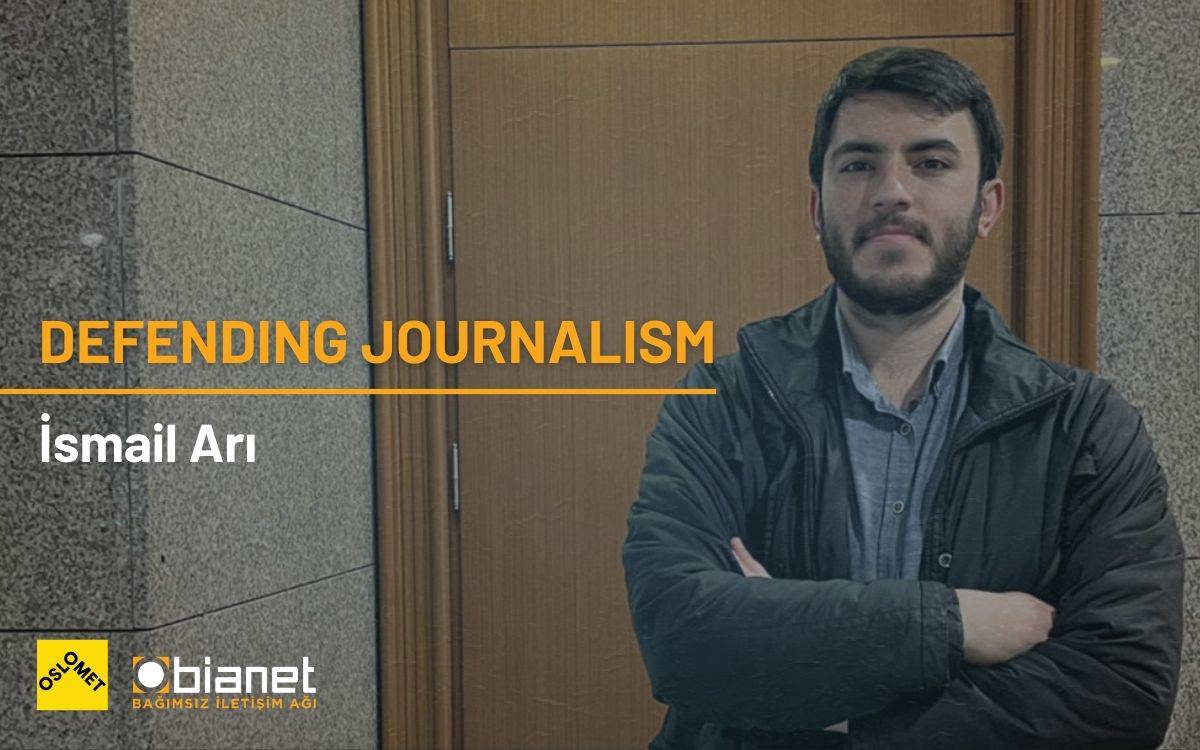Auto-generated English subtitles are available for the video.
Journalism is undoubtedly one of the most challenging professions in this country. If your goal is true journalism—uncovering hidden truths and exposing what’s kept under wraps—there’s no end to the challenges you’ll face. For instance, you must be prepared for your house to be raided at dawn, for arrests, or even imprisonment. And on top of that, you’ll likely have to deal with smear campaigns, dozens of lawsuits, and relentless investigations.
I, too, am fighting to practice journalism. The "rewards" of this pursuit for me have been a prison sentence of 1 year and 8 months, over 20 lawsuits, and numerous investigations. Dozens of my articles have been effectively erased through access-blocking decisions.
My 1 year and 8 months sentence was handed down because I reported on fines imposed on the former Red Crescent President Kerem Kınık and General Manager İbrahim Altan, who gained nationwide attention during the earthquake disaster for selling tents. In other words, because I covered a financial penalty imposed by the Ministry of Interior, the judiciary decided to penalize me as well. They told me, “We’ll suspend the ruling for five years, essentially tying your hands and feet for that time.” What they meant was clear: "If you don’t behave for five years, if you dare to uncover more corruption, theft, or scandals, we’ll give you another sentence, and you’ll end up in prison."
Of course, I didn’t give up on journalism. As a result, they kept piling on new lawsuits. One of the latest cases involves a story I wrote about Rıza Uçan, a former deputy mayor of AKP-run Güngören Municipality who was later appointed as a bureaucrat in the Ministry of Health by President Erdoğan.
I revealed that Uçan assaulted a citizen and was on trial for it. For reporting on this, I’m now accused of insulting a public official. To summarize: Uçan is on trial for assaulting a citizen, and I’m being tried for reporting on it.
I’ve also been summoned for questioning nearly eight times over articles I wrote about an MHP parliamentarian. That means eight separate investigations have been launched. Some of these were consolidated into three shiny new cases. I’m accused of committing a crime for exposing how the MHP MP acquired public lands and obtained Serbian citizenship.
Not long ago, they did something similar with AKP’s Mustafa Varank, who was a minister at the time. When I reported on how his cousin obtained prime public lands from the state, they filed a lawsuit against me at lightning speed. In court, I explained that this story earned me an award and that anywhere in the world, the business dealings of politicians’ or bureaucrats’ relatives with the state are newsworthy. Perhaps they were embarrassed to issue a sentence...
Then there are the access-blocking and content removal orders that effectively say, “Your work might as well be written in water.” To obtain an access-blocking order, you don’t even need to go to the court in your own city. For example, if you live in Edirne, you can get an order issued from Gaziantep. If you’re in Trabzon, a judge in Mersin can make the decision. This shows one thing: you can find the right judge to grant your access-blocking order...
This is how they conduct a memory-wiping operation—destroying our reports to clean up their records. And they do it with such scandalous audacity.
For example, a deputy governor from a Central Anatolian city had articles about himself blocked by filing a request in Sakarya. He even told the court, "I’m not on trial, but they’re falsely reporting that I am." And the judge granted his request, blocking all the articles. Yes, you read that right: a deputy governor who is actually on trial erases reports about his case by claiming he isn’t on trial!
That’s not all. The owner of a major company in İstanbul managed to block articles about himself through a court in the small Şanlıurfa district of Siverek. But given the revelations about the bribery network in the judiciary, none of this is surprising anymore.
As I write these lines and recount these judicial scandals, I’ve deliberately refrained from naming the MHP parliamentarian, the deputy governor, and the businessman starring in these fiascos. Why? Because if I did, this piece would also disappear. Still, a quick internet search would tell you exactly who they are.
Moreover, while fighting to do journalism amidst lawsuits, investigations, and access bans, you must also protect yourself. One day, you might be threatened or targeted by a government ally. On another day, you might be harassed by the criminals or fraudsters you expose.
Take, for instance, an organization called *Ak Gençlik Ocakları* (White Youth Halls), which is known for some rather peculiar activities. Its president, Ferhat Aydoğan, was arrested last July for producing fake ID cards allegedly on behalf of the Ministry of Interior. In fact, Interior Minister Ali Yerlikaya himself shared footage of Aydoğan’s arrest on social media, captioning it with “Action has been taken.” Before his arrest, Aydoğan hurled insults at me and even threatened me for reporting on him.
I filed a criminal complaint against Aydoğan. The İstanbul Anadolu Chief Public Prosecutor's Office then requested İstanbul Gendarmerie Cyber Crimes Unit to identify Aydoğan's identity and address.
However, in its report dated August 14, 2024, the gendarmerie informed the prosecutor's office that they “could not determine Aydoğan’s full identity or address.” Essentially, the gendarmerie was saying, “We can’t find Aydoğan, whom Minister Yerlikaya located and who is currently in prison.” Could this absurd report be because the complainant is an opposition journalist?
Amidst all this corruption and as our journalist colleagues face relentless challenges, we must continue writing and practicing journalism with defiance. We must persist in amplifying the voices of those silenced. That is the sole, genuine satisfaction in this profession.
Knowing that one report led to the capture of a fugitive contractor in a long-dormant earthquake trial, the cancellation of a multibillion-lira rigged tender, or the disruption of a corrupt profit scheme—these are the most rewarding aspects of being a journalist.
I once saw a sign at a protest that read: "If you're a journalist, you don’t bow down." Those three words encapsulate the struggle of journalism.

Defending Journalism
(İA/VK)





